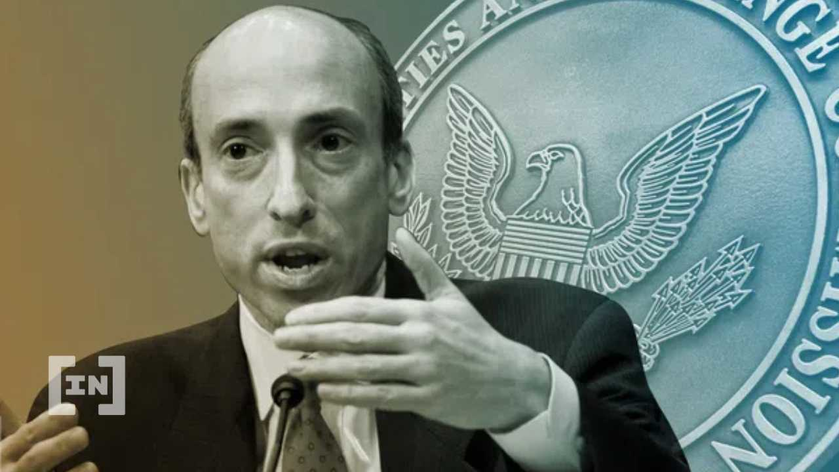Gary Gensler, Chairman of the Securities and Exchange Commission, says the ‘vast majority’ of crypto assets are securities but didn’t elaborate on how to determine whether one is.
According to Gensler’s written testimony, which he is expected to present before the U.S. Senate Committee on Banking, Housing, and Committee tomorrow, adapting decades-old securities laws is critical in ensuring the continued financial leadership of the United States in the face of increasing changes in technologies and business models.
Gensler and the SEC have been cops on the beat in the crypto markets, championing the need for crypto assets to be registered as securities.
But the SEC has come under criticism from crypto industry advocates who decry the lack of regulatory guidance and the SEC’s ‘regulate-by-enforcement’ approach.
The agency has launched a probe into Coinbase, the largest crypto exchange in the U.S., for allegedly offering its customers unregistered securities. It is also locked in a prolonged legal battle with Ripple Labs, the issuer of crypto asset XRP, and its top executives for offering unregistered securities. Digital asset manager Grayscale recently sued the SEC for rejecting its application to convert its bitcoin trust into a spot bitcoin ETF.
Progress on the registration side
But progress is promising. While Gensler has not mentioned any guidelines other than the famous Howey Test to determine whether a cryptocurrency is a security, he has commissioned SEC staff to help exchanges register separately for the different services they provide, considering that some exchanges simultaneously act as broker-dealers or custodians. He opines that this approach will help protect investors.
Still, not everyone is thrilled at the lack of clarity on determining if a crypto asset is a security. In response to Gensler’s testimony, one Twitter user @djdhrubs said, “Same old shit as he said last year, regurgitated. Won’t answer whether ETH is a security. Confusion remains.”
Gensler has also asked SEC staff to help platforms register tokens as securities under existing securities laws and to recommend ways that security tokens can coexist with non-security tokens. He is not opposed to crypto intermediaries such as broker-dealers and exchanges holding concurrent registrations with the SEC and the Commodities and Futures Trading Commission.
Gensler’s increased workforce at the SEC could come partly from the recent formation of the “Office of Crypto Assets,” an office that falls under the Division of Corporation Finance’s Disclosure Review Program (DRP). The new office was created to provide the agency with new resources and expertise to process filing issues related to crypto assets.
The SEC agreed early on that bitcoin wasn’t a security. Ether’s classification as a non-security came when a former SEC official during the Trump-era, who said that while Ether may have started as a security when it was used to raise funds, it has since morphed into something that is now ‘sufficiently decentralized’ to drop the title.
Gensler prioritizes investor protection
Gensler’s mantra regarding crypto until now has been investor protection. “Investors deserve disclosure to help them sort between the investments that they think will flourish and those that they think will flounder. Investors deserve to be protected against fraud and manipulation,” he said in a speech on Sep. 8, 2022.
The SEC has repeatedly denied applications to allow exchange-traded funds to track the price of bitcoin directly for fear that the underlying market could be manipulated, putting investors at risk. Instead, it has backed the launch of a few notable bitcoin futures exchange-traded funds to help investors gain exposure to bitcoin without owning the asset.











 All while Pfizer—a company with a $2.3 billion criminal fine for fraudulent marketing, bribery, and kickbacks—was given blanket immunity from liability and billions in taxpayer dollars to produce a vaccine in record time with no long-term safety data.
All while Pfizer—a company with a $2.3 billion criminal fine for fraudulent marketing, bribery, and kickbacks—was given blanket immunity from liability and billions in taxpayer dollars to produce a vaccine in record time with no long-term safety data.
























